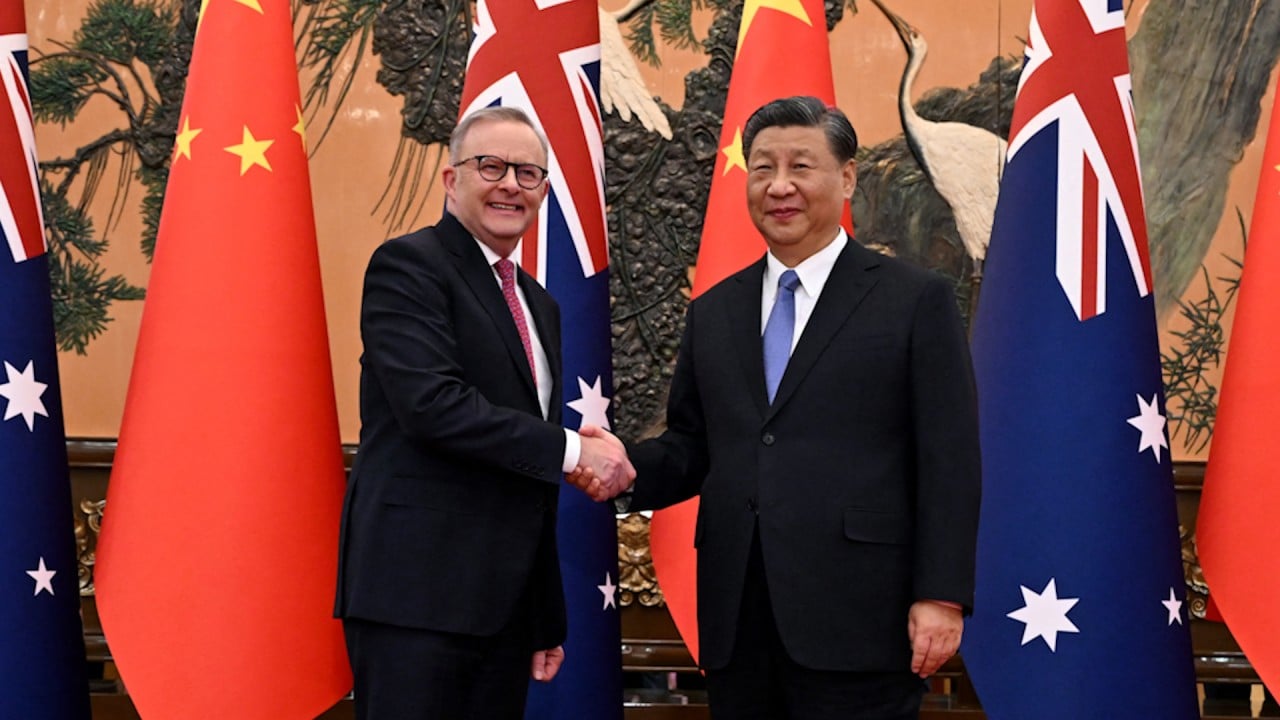It underscores the pull-and-push in the newly stabilised China-Australia ties, where there is willing engagement between the two nations when friction arises in shared areas such as regional seas.
“If there are interactions with other militaries, in this case with the Chinese navy, what needs to happen is that assistance in those interactions occur in a professional and safe way.”
Reciprocal professional approaches are critical between two nations trying to work together, he says.
“We do have peace here, there is peace between Australia and China,” he said.
“We’ve gone through a period of non ministerial contact for two or three years … and since then we’ve had numerous interactions at the ministerial level. That’s a good thing, we want that to continue.”
“There are disagreements … and we need to speak clearly and frankly with each other even if those messages are difficult.”
Just two years ago, bilateral relations between the two nations were at record lows amid finger-pointing about the origins of the Covid-19 pandemic, and China’s restrictions of Australian exports.
Exports of major Australian goods like coal to China have resumed since, while China has also lifted duties on Australian barley.

Canberra also said two days ago it had eased a ban on five meat processing plants exporting to China. Eight beef processing plants were allowed to resume exports to China, while two facilities remain suspended.
Marles reflected on the same push-and-pull issues in a separate plenary speech on Saturday.
As China continued to increase its military capability and stepped up to a larger global role, it would be more heavily scrutinised, especially on its adherence to rules, norms and binding treaty commitments.
“There is no indelible hostility to China. It is about how we build a safer world and a safer region.
“A stable and sustainable regional order won’t be possible unless all countries – but especially big ones – pursue their strategic objectives in a manner that respects the sovereign rights of our neighbours and the obligations imposed by international law.”
There is no indelible hostility to China. It is about how we build a safer world and a safer region
He pointed out that attention must be paid to China’s strategic behaviour and the signal it sent, pointing to the two naval skirmishes between the two nations, Chinese use of water cannons and ramming of Philippine vessels in the West Philippine Sea, and Chinese military exercises of attacks and blockades of Taiwan.
China responded to Marles’ speech, saying in a question and answer session after the speech that it had never waged war on any nation but it has sovereignty to defend its national security including territories and borders in accordance with international law.
A Chinese army member of the audience said there were mistakes in Marles’ claims about China’s engagement with Taiwan and the Philippines.
“More Taiwanese people welcome the PLA to protect them. And Taiwan is a province of China and will not endanger Taiwan’s security,” he said.
“And you didn’t mention that the Philippines intentionally collided with China’s coastguard ship.”
While leaders reinforced the importance of the rule of law, the Chinese army member questioned how states like Australia could adhere to that law if there were increasingly small group military alliances across the world.

In relation to “small groups”, Marles told TWIA separately that in terms of Aukus – the trilateral pact among Australia, Britain and the US that was not a military alliance – Australia remained steadfast in its role as a steward when it comes to nuclear waste and contamination once the nuclear-powered submarines under the pact were delivered.
Responding to Chinese comments at the dialogue, however, Marles said the rules-based order underpinned peace and security in the region as well as economic prosperity and growth within Asia-Pacific.
“China has benefited from that. Australia has benefited from that. And we have benefited from our relationship with China,” he said.
“I have repeatedly said that we value the most productive relationship that we can have with China.”


